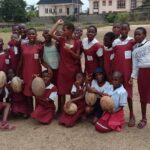BEACON tasks Nigerians on blood donation to bridge supply gap
By Sani Idris An NGO, Beacon of Transformative and Inclusive Development Centre (BEACON), has urged Nigerians to donate blood to help bridge the significant supply gap in the country. The Executive Director, Mrs Abigail Olatunde, made the call in a statement in Kaduna on Saturday, to commemorate the World BloodContinue Reading












